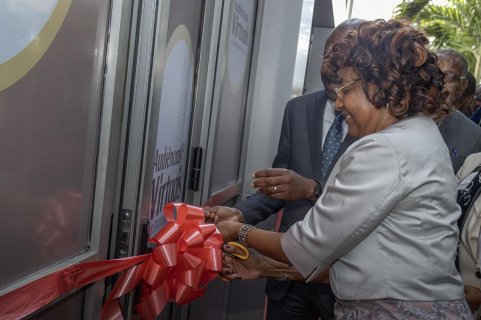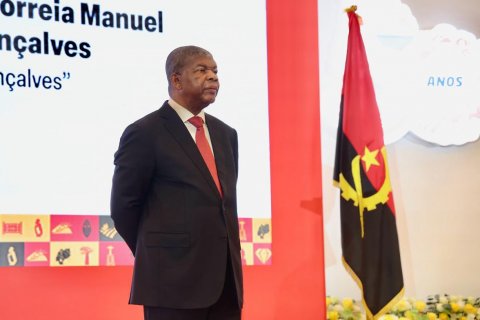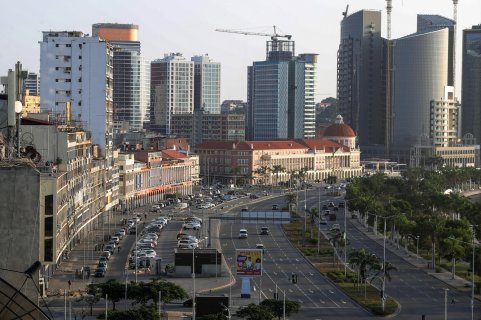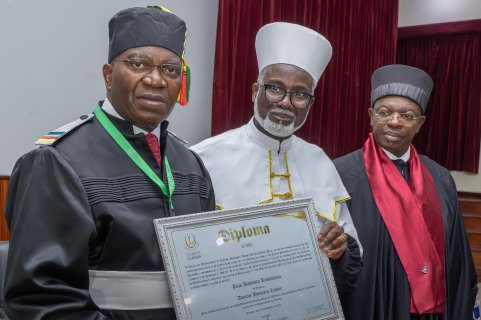The Proposed Law Amending Law No. 8/20, of 16 April - Law on Environmental Conservation Areas has raised controversy in society, with environmental organizations demonstrating against the possibility of exploiting mineral and oil resources in environmental conservation areas.
The document was generally approved with 116 votes in favor of the Popular Movement for the Liberation of Angola (MPLA), 46 against the National Union for the Total Independence of Angola (UNITA), the Wide Convergence of Salvation of Angola - Electoral Coalition ( CASA-CE), of the Social Renewal Party (PRS), and two abstentions by independent deputies.
In the presentation of the law, the Minister of Culture, Tourism and Environment, Jomo Fortunato, said that the proposed change will allow the exploration of mineral resources, oil and gas in protected environmental areas, as an exception in national parks.
"In relation to nature reserves, given their importance for the preservation of wildlife, flora and fauna and others of special interest, we reiterate the imperious nature of their preservation", said the minister, stressing that it is predicted that only partial nature reserves or special ones may be subject to the exploitation of mineral resources, oil and gas, maintaining the total reserves as totally prohibited from all exploration activity.
According to the minister, the exploitation of mineral resources, oil and gas could benefit national parks or nature reserves, with investments capable of generating economic prospects, mitigating the environmental impact, strengthening the protection of the ecosystem and protecting the local communities, which normally have with them your culture.
In addition to Law No. 5/98, of 19 June - Basic Law on the Environment, the future exploitation of mineral resources, oil and gas in areas of environmental conservation must take into account and harmonize with other special legislation, namely Law no. 10/4, of 12 November - Law of Petroleum Activities and Law no. 31/11 of 23 September, which approves the Mining Code, Law no. 9/4 of 9 of November - Land Law, Law no. 6/17, of 24 January - Law of Bases of Forest and Wild Fauna, as well as Presidential Decree no. 117/20, of 22 April, which Approves the Regulation General Environmental Impact Assessment and Environmental Licensing Procedure.
In response to the concerns raised by the deputies, Jomo Fortunato said that the matter must also be analyzed from the scientific point of view in the sense that there are pre-exploratory studies, necessary for the exploration of oil.
Jomo Fortunato stressed that there are also advantages to be considered, such as the compensation funds that arise from this activity, which open an opportunity to finance conservation programs in the respective areas.
"Then there is the incentive of the local economy through the generation of more direct and indirect jobs with the development of ecotourism and goods and services that do not exist in the area", he said, also pointing out the possibility of significantly improving the inspection in the conservation areas with the acquisition of means for this purpose.
"We know that currently the inspection of conservation areas is a big problem, there is a need for infrastructure and financial support", he stressed.
In turn, the Minister of Mineral Resources, Oil and Gas, Diamantino de Azevedo, said that, possibly, three conservation areas may be included in this activity, noting that of the approximately 520 thousand square kilometers of internal sedimentary basins, of Cassanje and Etosha / Okavango, only 20 percent are in protected areas and only 5 percent of protected areas are being considered for geological studies.
"Possibly in just 3 percent of that area, a tear will be installed to carry out the exploration, so what we think is paramount here is to use existing environmental laws - and our country has good environmental laws - to respect the issue of communities and do with that the revenues are also used for the improvement of the parks and for the improvement of these communities ", he said.
In his explanation of vote, the deputy not integrated in the CASA-CE parliamentary group, Lindo Bernardo Tito, said that he voted against because he did not accept a strategy for the exploitation of natural resources "based on political immediacy" and, fundamentally, for not protecting the future. of the country, generations to come, fauna and flora.
In turn, the leader of the CASA-CE parliamentary group, Alexandre Sebastião André, said that the vote against was due to several factors, among which, transmitting to the international community a certain legal uncertainty of the laws that are produced in the country, taking into account that the law that is now intended to be amended was approved less than a year ago.
In the same vein, the first vice president of the UNITA parliamentary group, Maurílio Luiele, questioned the reasons for changing the law "in such a short time".







